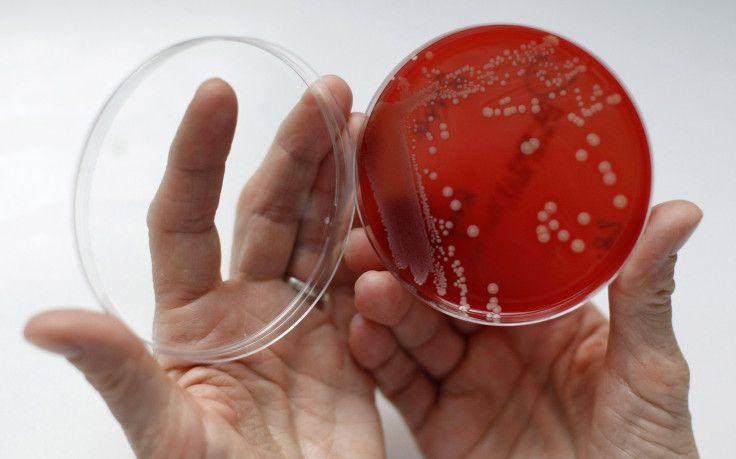First New Antibiotic Discovered In Decades Could Kill Drug-Resistant 'Superbugs'

Scientists have discovered what might potentially be a much-needed breakthrough in the fight against drug-resistant “superbugs,” according to the findings of a new study published Wednesday in the journal Nature. A new class of antibiotics named teixobactin has been identified in a bacteria discovered in a field in Maine, marking the first such discovery in decades.
Although the new antibiotic has yet to be tested on humans, it has been found to be effective against drug-resistant strains of several potent microbes in cell cultures and in mice, including tuberculosis, Methicillin-Resistant Staphylococcus aureus (MRSA) and many other pathogens that have been found to be immune to even the most powerful drugs, Nature said, in an article accompanying the findings.
The bacterium, named Eleftheria terrae, belongs to a genus that was previously not known to produce antibiotics. Testing a compound extracted from the bacteria on mice, scientists found that it rapidly cleared even infections caused by Mycobacterium tuberculosis and Staphylococcus aureus. Moreover, the scientists also found that the mechanism of action of the antibiotic made it extremely difficult for microbes to develop a resistance to it.
According to a report by National Geographic, while over 20 new classes of antibiotics, including penicillin and streptomycin, were discovered before 1962, only two have been discovered since. As a result, pathogenic bacteria have had decades to develop resistance to existing drugs -- a problem that has already reached “alarming levels,” according to the World Health Organization (WHO).
Gerard Wright, a biochemist at McMaster University in Hamilton, Canada, who was not involved in the study, reportedly said that teixobactin had shown a lot of promise in initial tests. “I don’t believe there’s such a thing as an irresistible antibiotic. But I do believe that certain antibiotics have a low frequency of resistance,” he reportedly said.
The latest breakthrough could provide scientists a powerful weapon against drug-resistant pathogens, which are believed to kill over 700,000 people every year. According to a recent study conducted by a British government-commissioned review, infections caused by superbugs could kill over 10 million people annually by 2050.
© Copyright IBTimes 2024. All rights reserved.






















